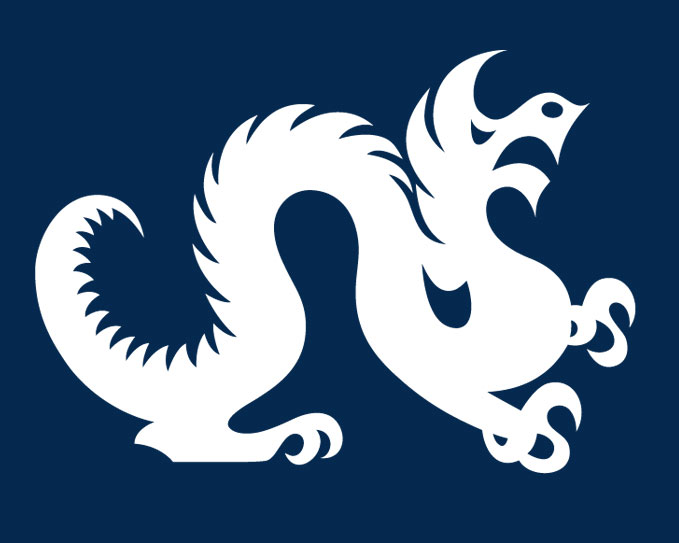When Drexel decided to launch a varsity squash program last year, it hired one of the world’s most accomplished players to run the show. Now, the challenge for John White is simple: Build a program from scratch. And win.
By Mike Unger
If John White builds Drexel’s new squash program as fast as he can smash a ball, the Dragons will be winners in the blink of an eye.
One of the sport’s most popular players, White holds the world record for the fastest recorded squash shot—an astounding 172 miles per hour. As the University’s first head squash coach, he’s attacking the job of assembling varsity men’s and women’s teams with the same ferocity.
“I want the players to realize how much enjoyment they can get out of being on a team,” he said. “Within [a few] years I’d like to reach the top 10. The top teams have some unbelievable athletes. You get to that level and it becomes a different kettle of fish.”
White would know. He reached No. 1 as a professional player, and last year coached Franklin & Marshall College’s men’s team to the No. 8 ranking in the country. That’s the level of success Drexel Athletics Director Eric Zillmer hopes to replicate in Philadelphia, a hotbed for squash.
“I can’t think of a better individual leading our new squash program than John White,” Zillmer said. “He is a charismatic coach, a genuine person, and simply irresistible in his enthusiasm for the sport.”
Like the other boys growing up down under in Queensland, Australia, White competed in soccer, rugby, and cricket. But from the age of 8 he also played squash, a racquet sport contested in a four-walled court using a small, hollow rubber ball.
His earliest opponents were his parents and brother, who soon stood no chance against the emerging star. White shot up the junior rankings, and a year after high school enrolled in an Australian sports academy that readied him for the world tour.
During a 17-year career in the Professional Squash Association, White racked up a dozen titles and earned the No. 1 ranking in March 2004. His most prestigious victories were the 2003 PSA Masters in Qatar, the 2003 Prince English Open and the Scottish National Championship. Squash brought White even more than trophies, prize money, and a chance to see the world. He met his wife, Susan, in a fitness club where he was playing a tournament. They settled in the U.S. six years ago, and now live in Exton with their four children.
When Drexel elevated squash from a club sport to varsity (there are 30 women’s and 32 men’s varsity teams in the College Squash Association, which governs the sport on the collegiate level), White leapt at the chance to lead the program.
“Leaving [Franklin & Marshall] was one of the hardest decisions I had to make, but I’m in a bigger city where squash is thriving and I’m closer to home,” he said. “The Philadelphia area’s got anywhere from 100 to 200 juniors in every single club and it’s such a developed junior program you can be anywhere from the age of 8 to 17 and play. There are weekend coaching clinics, they have junior camps, there are a lot of junior tournaments. Even when I was traveling in ’94-’95, the clubs we played in the area were as good as any on the tour.”
The eyes of the squash were focused on Philly when Drexel hosted the U.S. Open from Sept. 30 to Oct. 6 at the Daskalakis Athletic Center.
“That was one of the biggest pluses we could have had,” White said. “The kids that came to watch the U.S. Open, they’ll be seeing the team, they’ll know where Drexel is. The buzz is a huge boost for the program and something we can build on. It’s awesome to have.”
Three weeks after the Open, Drexel began its inaugural season when both the men’s and women’s teams visited Haverford. With only one home match scheduled for the season, White knows the road ahead is difficult. Though the women’s roster is comprised of all players on last year’s club team and the men’s features just three new players, the transition to the more competitive varsity level will be pronounced.
“As long as they have a good work ethic and put the work into their training—and have a little bit of fun—I’ll be pleased,” he said. Squash is more than just one of the fastest sports in the world; it’s one of the fastest growing. With 15 million players in 150 countries and junior participation up 88 percent in the last three years, White will have an ever-expanding pool of talent from which to recruit. He has two scholarships, world-class facilities, one of the sport’s most sterling resumes and its sexiest record at his disposal.
“The speed, the angles, it’s a very catchy sport,” he said. “You learn something new every time you walk onto a court, doesn’t matter what level you are. It’s one of those sports that gets a hold of you and you just want to get out there more and more.”


